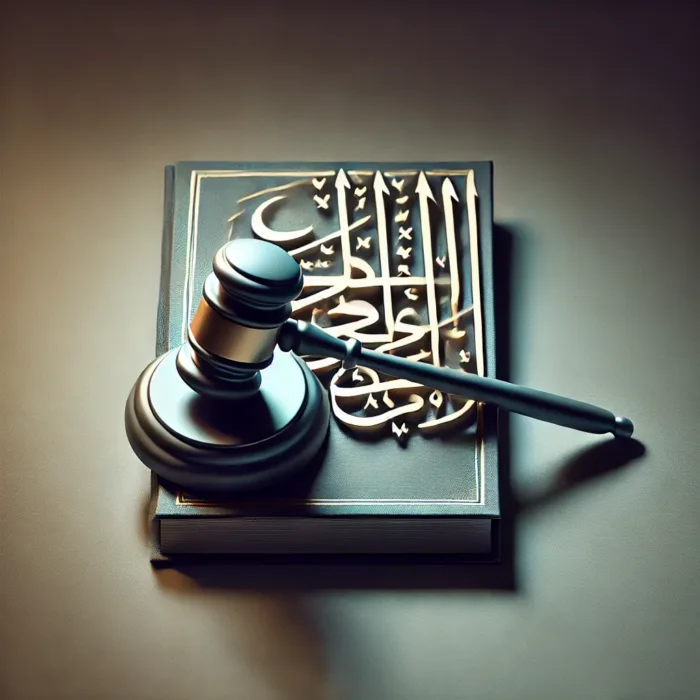Table of Contents
Introduction
This article is the eighth article in the series ‘Be Proud of Your Islam‘, which examines how Human Centrality in contemporary Islamic societies conflicts with Divine Centrality in Islamic legislation and rulings. This divergence from ALLAH’s central role in guidance leads to deviations from authentic Islamic methodology. Click here to explore the full series.
Human Centrality: The Shift from Divine Law to Satanic Influence
This article examines practical examples of Human Centrality in Muslim countries to address its impact on Islamic consciousness. The concept of Human Centrality serves as a connection between servitude to ALLAH and servitude to Satan. As discussed previously, when people abandon Divine Centrality and claim authority for themselves – whether to fulfill desires or pursue freedom and equality – they ultimately submit to Satan’s influence.
The following sections explore examples that demonstrate this connection between servitude to ALLAH, the Most Merciful, and servitude to Satan. These examples manifest in laws established within Muslim countries and in the general lifestyle of Muslims today.
The Absence of Divine Law in Modern Legal Systems
One striking example of Divine Centrality’s absence in Muslim societies appears in legal punishments concerning sacred matters. Most Muslim countries implement laws that state: “Whoever utters in a public place and within hearing of another person a word or sound that would lead to insulting the religious feeling or belief of that person shall be punished by imprisonment or fine”.

This legislation focuses solely on protecting human religious sentiments rather than upholding ALLAH’s sanctity. Under such laws, if someone insults ALLAH and HIS messengers publicly without anyone claiming offense to their religious feelings, no legal consequences would follow. These laws demonstrate no inherent reverence for ALLAH, HIS books, HIS messengers, or HIS religion – only consideration for human sensitivities.
This stands in stark contrast to ALLAH’s words regarding those who spoke unfittingly of HIM, even without explicit insult:
“You have done an atrocious thing. The heavens almost rupture therefrom and the earth splits open and the mountains collapse in devastation“1
(Suraat Maryam, 19:89-90)
Furthermore, these laws equate all religions, offering equal protection to true and false beliefs. For instance, if someone tells a cow-worshipper that their sacred cow is merely an animal without power to help or harm, they could face legal consequences identical to someone who insults ALLAH, should the worshipper’s religious feelings be hurt.
Paradoxically, in these same Muslim countries, strict legal penalties exist for criticizing certain officials who possess legally-granted sanctity. Criticism of these individuals constitutes a crime regardless of whether it offends anyone’s feelings or even if it represents popular sentiment. Similarly, state symbols receive legal protection, with their disparagement criminalized independent of any hurt feelings.
Voting on Divine Laws: A Contradiction of Islamic Principles
A prominent manifestation of Human Centrality appears when ALLAH’s definitive rulings face public voting and polling. Issues where ALLAH has provided clear guidance regularly become subjects of debate in legislative councils, media discussions, academic settings, social platforms, and public referendums:
- “What’s your opinion on retribution by executing the killer – for or against?”
- “What’s your view on a Muslim woman marrying a non-Muslim?”
- “What’s your stance on LGBTQ+ rights?”
- “What do you think about male guardianship? Should it really be for men?”
- “What’s your opinion about envy? Jinn? Is magic myth or reality?”
- “What’s your view on the system society should adopt? Sharia or something else?”
- “What’s your position on legal abortion? A woman’s right or killing a soul?”
These questions disregard the fundamental Islamic principle that divine texts leave no room for individual interpretation or voting. Instead, they position humans as arbiters of ALLAH’s rulings. Even when controversial matters arise, the discussion framework prioritizes human preferences over proper jurisprudential study based on religious evidence.
This approach effectively subjects ALLAH’s rulings to popular vote, shifting centrality from the Creator to human desires. Certain Western Arabic-language channels deliberately promote such polling to diminish the authority of the Quran and Sharia by making them subjects of debate.
This voting system suggests that an opinion gains legitimacy through majority support, even if it clearly contradicts ALLAH’s rulings. Conversely, divine commands lose influence if they lack popular backing. Muslims participating in such votes fall into this trap, whereas their duty lies in rejecting and exposing the corruption of this practice.
Posing these questions to Muslim society represents a fundamental contradiction. It essentially asks: “As someone who has submitted to ALLAH and acknowledges HIS word – ‘It is not for a believing man or a believing woman, when ALLAH and HIS Messenger have decided a matter, that they should [thereafter] have any choice about their affair. And whoever disobeys ALLAH and HIS Messenger has certainly strayed into clear error‘2 – what is your opinion on matters where you shouldn’t have an opinion?”
While Muslims may sin or fall short, they should still recognize Sharia as the ultimate reference and absolute truth. These votes, however, challenge the very authority of Sharia, essentially questioning ALLAH’s wisdom:
“How could HE not know HIS Own creation? For HE ˹alone˺ is the Most Subtle, All-Aware“3
(Suraat ‘Al-Mulk, 67:14)
“What do you think – does ALLAH really know what HE created or not? Is ALLAH truly subtle and aware or not?” (Seeking refuge in ALLAH from such thoughts).
Hijab: Between Divine Command and Personal Freedom
A concerning manifestation of Human Centrality emerges in the phrase “hijab is a personal freedom”. When Muslim countries implement anti-hijab laws or media outlets criticize hijab, some defend it using the language of personal freedom.
A critical distinction exists between two scenarios. The first involves addressing non-believers who reject Islam’s comprehensive authority over life. In such cases, one might argue: “By your own principle of freedom as the highest value, hijab represents personal choice. Your restriction of hijab while permitting everything else reveals inconsistency in your claims”.
This differs fundamentally from Muslims adopting “hijab is personal freedom” as their primary defense. Muslims who have submitted to ALLAH’s authority and acknowledge HIS sole right to judge should not promote this slogan on social media and in gatherings as if it represents Islamic belief.
This slogan, in the Muslim context, stems from Human Centrality and individual desire. Such reasoning suggests Muslims should not discourage immodest behavior, and that promoting virtue might violate personal freedom. In reality, hijab emerges from Divine Centrality – encouraging it represents promoting good, while discouraging immodest display means preventing evil, both essential duties in Muslim society.
Hijab transcends customs, traditions, or personal preference. It represents an act of worship requiring proper intention, passed down through generations as devotion and obedience to ALLAH, LORD of the Worlds. This principle applies to all religious obligations sometimes misrepresented as personal freedoms.
The authentic Muslim response remains:
“The only statement of the believers when they are called to ALLAH and His Messenger to judge between them is that they say, ‘We hear and we obey.’ And those are the successful,”
“The only statement of the [true] believers when they are called to ALLAH and HIS Messenger to judge between them is that they say, “We hear and we obey.” And those are the successful. And whoever obeys ALLAH and HIS Messenger and fears ALLAH and is conscious of HIM- it is those who are the attainers.“4
(Suraat ‘An-Nuur, 24:51-52)
Final Reflection: The Ultimate Truth of Divine Centrality
“O mankind, you are those in need of ALLAH, while ALLAH is the Free of need, the Praiseworthy“5
(Suraat FaaTir, 35:15)
This fundamental truth reminds everyone that making ALLAH central in life benefits the creation, not the Creator. Therefore, maintain your Islamic identity with conviction and take honor in submitting to ALLAH’s guidance.
Source:
- Dr. Eyad Qunaibi. رأيك أم حُكم الله؟! – كن عزيزاً بإسلامك [8]. YouTube Video.


1 thought on “When Human Desires Eclipse Divine Law: A Critical Analysis of Modern Muslim Societies”